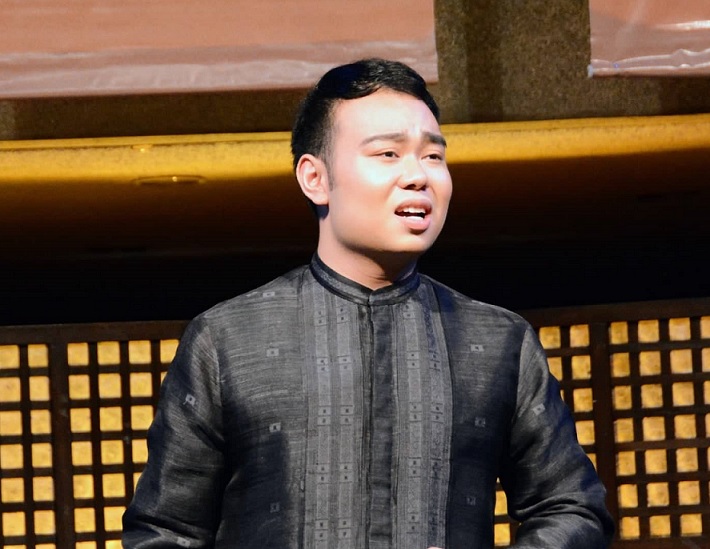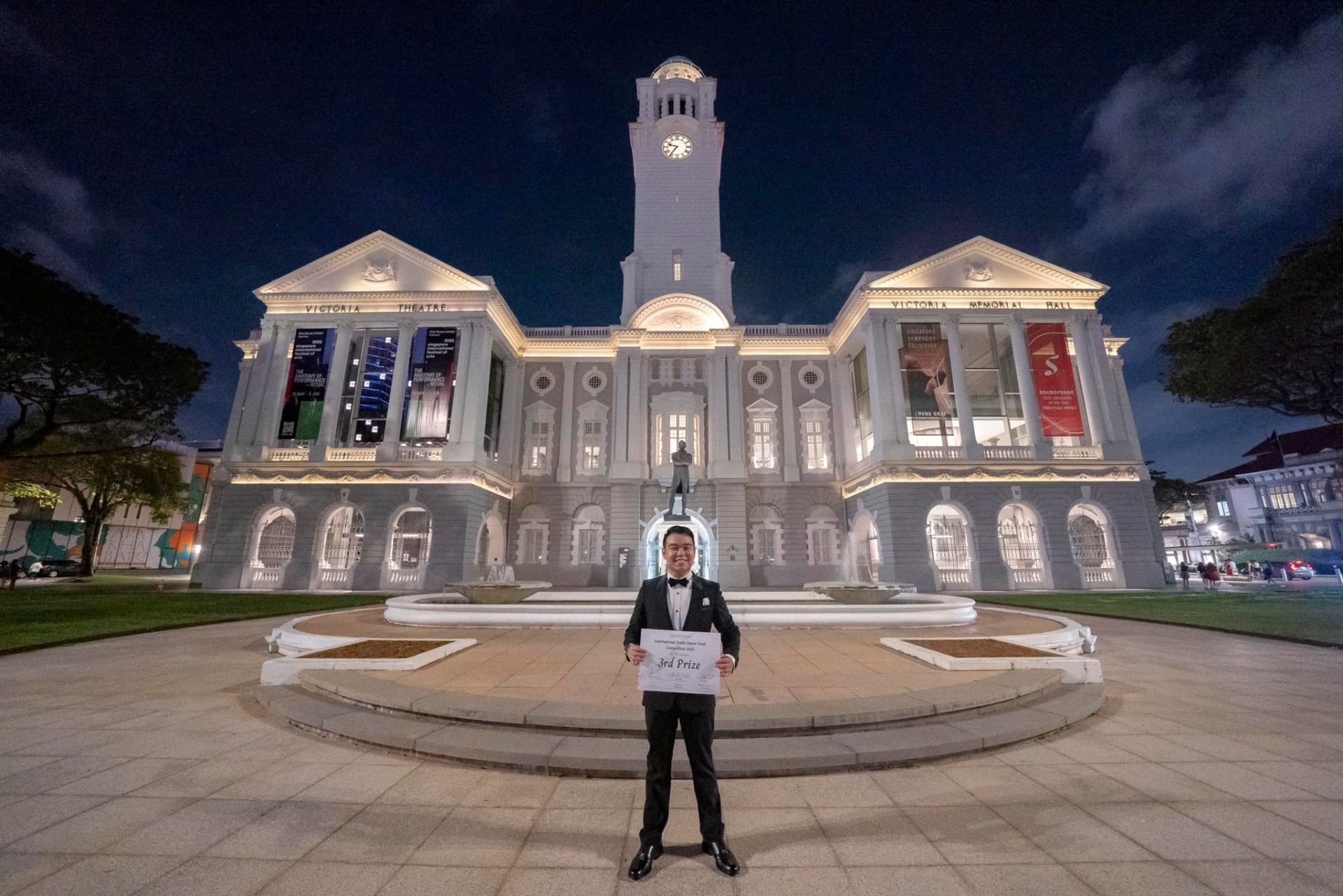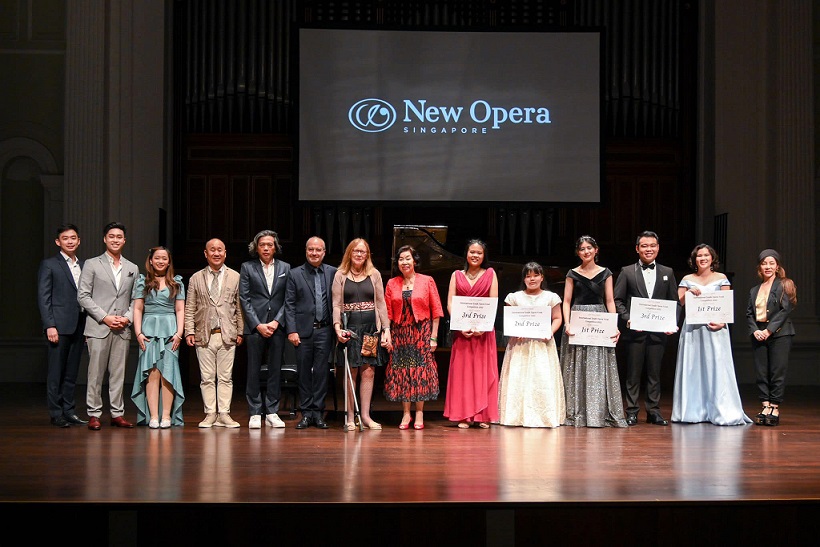
The staging of Minamahal Kita by the Friends for Cultural Concerns of the Philippines (FCCP) Thursday night (Sept. 15) at the CCP main theater lobby yielded a fine young baritone singing Abelardo’s Bituing Marikit with rare consummate artistry.
The timber was suave and delicately defined, the diction crystal clear. To top it all, he acted the Filipino art song and made something ravishing about it without the lure of vocal calisthenics.
As expected, audience erupted into applause followed by a shower of bravos. Indeed, one has not heard a baritone of that quality in a long, long time.
He is no other than Kris Gonzales, 21, a fourth year communication arts student at the Ateneo de Manila University.
We can all go back to the distinguished baritones of our time (Gamaliel Viray, Nomer Son up to the younger ones, the late Andrew Fernando and Noel Azcona) and reflect that we had quite a good harvest.
Even if Kris was only given two songs and a token duet at the CCP show, his performance was so marked and his piece interpreted with elan that one could simply conclude: an exciting young baritone is born.
His promise didn’t go unnoticed in his first international voice competition.

Kris won second runner up in the recently concluded Youth Opera Competition and Festival in Singapore. “My mentor — Christopher Arceo — encouraged me to join the competition. He felt I was ready to test the international stage.”
He sang two contrasting competition pieces — The Raging Flames Arise from Handel’s Oratorio, Joshua, and Hugo Wolf’s Verborgenheit. “It was one of my most cherished experiences as a singer. It was special because I was representing our country. I have realized a greater demand to share opera with an audience of the post- modern world. I believe opera remains to be relevant even up to the present. I am glad that my fellow singers in Singapore were also aware of this. We were honored to share this responsibility together.”
His voice lessons started at age five after watching Phantom of the Opera in New York. “I attempted to copy Christine Daae. When we returned to Manila, my formal lessons started.”
It helped that he came from a music-loving family. “My parents are both choristers in our parish choir for the past 24 years.”

In the last five years, he focused on improving his baritone sound. “I have joined the De La Salle Zobel High School Chorale and I am now a current member and bass section head of the Ateneo de Manila College Glee Club. I am also privately mentored under the studio of Christopher Arceo, principal conductor of the Aleron Choir.”
One of his very first teachers was his neighbor — choral conductor Tessie Agana-Santos, a contemporary of National Artist for Music Fides Cuyugan Asensio. “Through her, I have come to appreciate classical music at a very young age. It was also through her that I started to learn about the mechanism of my instrument and how to utilize it well as a boy soprano back in the day.”
He realized he was a baritone at age 15. “I notice I was always in the bass section in different choirs at that time. My teacher (Arceo) has been one of the greatest mentors I have had in a long time. I like his philosophy of vocal freedom and how he makes me listen to my body so that I may utilize my instrument in a manner that is sustainable and true to my body’s capabilities. Through him, I have started to master my squillo (the resonant, trumpet-like sound in the voices of opera singers) and gradually reconciled my usage of vowels. I have also put a greater emphasis on breath pressure and the lowering of the larynx in order to remove unnecessary tension from the body that may hinder my vocal production. I appreciate being a baritone because it gives me the best of both worlds. Being able to achieve both the brightness of the higher registers and the dramatic colors the lower notes can bring. I hold on to this because there is a greater opportunity (for me at least) to showcase more varied emotions and dispositions.”
As a teenager, he loved listening to the late Russian baritone Dmitri Hvorostovsky. “I like his vocal clarity and commendable acting prowess.”
Among Filipino singers, he has admiration and respect for his contemporaries like Ivan Nery, Michelle Mariposa and Stefanie Quintin-Avila. “I like them because of a shared high-degree of understanding of their instruments with vocal qualities that serve as a standard for young singers like me.”
Kris has now learned to integrate his singing life into his academic load. “I am glad that my professors are also very supportive of my craft. My schedule in the day is primarily dedicated to my academics and my thesis work while the evenings are dedicated to my musical endeavors like my rehearsals with the Ateneo de Manila College Glee Club.”

What does he always try to achieve every time he sings? “A high degree of commitment to my character whenever I sing. On top of all of this, I always take measures to make sure that my larynx is always low, my vowels are reconciled, and that my breath pressure is always in the right place. My teacher, Mr. Arceo, has also taught me this – that vocal production should be completely independent from how my face and body react to my acting.”
In the future, he always imagined himself opening the opera Turandot in the role of Mandarino proclaiming the three riddles and the impending death to those that do not answer them correctly. “I have also wanted to sing the part of Scarpia in Tosca. Te Deum would have to be one of my most favorite arias both in its music and in its extravagance. I can see myself performing on the stage set filled with religious opulence and grandeur of that time.”
(Kris Gonzales and other voice students will be heard in the Arceo Voice Studio Recital, Sunday, September 18, 4 p. m. at the Church of The Risen Lord, Diliman, Quezon City.)